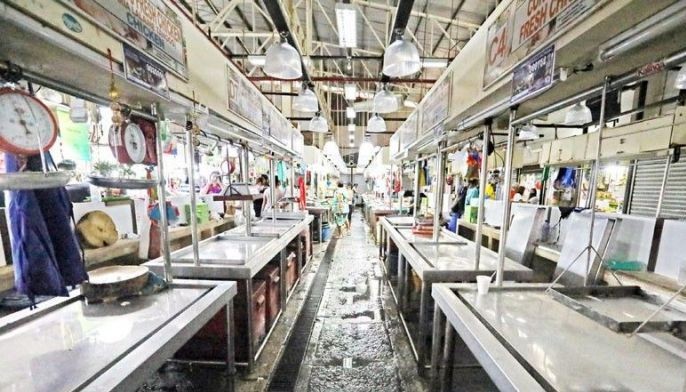MANILA, Philippines — The Duterte administration on Wednesday called for a food security summit to address pork supply issues and a hunger problem made worse by the COVID-19 pandemic.
Presidential spokesman Harry Roque said the agriculture department would lead the summit, which aims to boost the agri-fishery sector through the cooperation of local government units (LGUs), the private sector, and other stakeholders.
Related Stories
"The food security summit likewise aims to discuss mitigation measures on current issues affecting the agriculture sector such as the upsurge in the prices of pork, drop in farmgate prices of palay, the onslaught of the African Swine [Fever], among others," Roque said in a statement.
"It further seeks to present some models for agribusiness value-chain approach (and) LGU-led agri-fishery extension system and (to strengthen) the role and capacities of local price coordinating councils and regional development councils," he added.
Roque said the summit also seeks to develop a national food security plan to achieve the goal of "a food-secure and resilient Philippines" where farmers and fisherfolk are "prosperous," consumers have a continuous flow of food, and the movement of goods are unhampered.
No date has been set for the summit, which was proposed as the government is addressing a pork supply issue caused by the ASF.
The depleted pork supply has caused price spikes, prompting President Rodrigo Duterte to set price ceilings for selected pork and chicken products. Executive Order No. 124 imposed a price cap of P270 per kilo for kasim or pork shoulder; P300 per kilo for liempo or pork belly; and P160 per kilo for dressed chicken.
Pork traders and vendors have criticized the order, saying the price ceilings are too low given the rising production and transport costs.
The government has vowed to step up measures to ensure adequate supply of pork including allocating P600 million to support the hog raisers' repopulation efforts and P27 billion in loans to restart the hog industry. The administration has also formed an Economic Intelligence Task Force that would run after hoarders and price manipulators.
Roque said authorities could easily run after hoarders because the government already has a list of cold storage facilities.
"The NBI (National Bureau of Investigation) can easily catch you. The NBI only needs to look at cold storage facilities and it can check if there is hoarding of supplies. Do not do it during the time of COVID," he said at a press briefing on Tuesday.
The government is also considering further relaxing quarantine restrictions as it admitted that the displacement of workers could affect its efforts to combat hunger.


